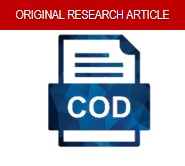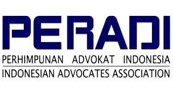The Misuse of Police Escorts and the Decline of Ethical Standards in Law Enforcement Institutions
DOI:
https://doi.org/10.46924/jihk.v7i1.304Keywords:
Patrol and Escort, Abuse of Authority, Public Trust, Police ReformAbstract
The misuse of Patrol and Escort (Patwal) facilities by internal members of the Indonesian National Police (Polri) has sparked public controversy and contributed to the erosion of public trust in the police institution. This study aims to examine the legal provisions governing the Patwal function as outlined in Law Number 2 of 2002, identify applicable sanctions for abuses of authority, and assess the legal and sociological implications of such misconduct on the institutional image and legitimacy of the Polri. Employing a normative legal approach and a descriptive qualitative method, this study is based on an extensive review of legal literature and case analyses. The findings reveal that the misuse of Patwal facilities reflects systemic weaknesses in internal oversight, a lack of integrity among personnel, and the ineffectiveness of administrative, ethical, and criminal sanction mechanisms. These violations underscore a persistent gap between established legal norms and actual field practices, further deteriorating public perceptions of the professionalism of the police force. This study recommends comprehensive regulatory reform, enhanced supervisory mechanisms, and institutional restructuring as strategic measures to restore public confidence and promote a fair, transparent, and accountable system of law enforcement.
Downloads
References
Journals
Adhari, Ade, Tundjung Sitabuana, and Indah Siti Aprilia. “Morality 1n Law: An Analysis Towards the Legal Philosophy and Indonesia National Legal System.” Indonesia Law Review 13, no. 2 (2023): 71–88. https://scholarhub.ui.ac.id/ilrev/vol13/iss2/1?utm_source=scholarhub.ui.ac.id%2Filrev%2Fvol13%2Fiss2%2F1&utm_medium=PDF&utm_campaign=PDFCoverPages.
Amri, Ahmad Ihsan, and Bayu Dwi Anggono. “Implementasi Perbandingan Asas Equality Before The Law Dalam Sistem Peradilan Pidana Di Indonesia Dengan Negara Lain.” Al-Syakhsiyyah: Journal of Law & Family Studies 6, no. 1 (2024): 85–95. https://doi.org/10.21154/syakhsiyyah.v6i1.8958.
Arifin, Muhammad, Muhammad Tahir, and Ihyani Malik. “Budaya Kerja Kepolisian Dalam Pelayanan Kepada Masyarakat Di Polres Enrekang.” Kajian Ilmiah Mahasiswa Administrasi Publik 3, no. 4 (2022): 1036–49. https://doi.org/10.26618/kimap.v3i4.8616.
Hamid, Mohhamad Renaldy, Roy Marthen Moonti, Ibrahim Ahmad, and Muslim A. Kasim. “Hukum Dan Kode Etik Profesi Bagi Anggota Polri.” Demokrasi: Jurnal Riset Ilmu Hukum, Sosial Dan Politik 2, no. 1 (2025): 248–259. https://doi.org/10.62383/demokrasi.v2i1.792.
Hamzah, Saiful Ibnu. “Pemikiran Hukum Dan Pranata Sosial.” Maqasid: Jurnal Studi Hukum Islam 9, no. 1 (2020): (182-195. https://doi.org/10.30651/mqsd.v9i1.10281.
Harrison, Teresa M., and Djoko Sigit Sayogo. “Transparency, Participation, and Accountability Practices in Open Government: A Comparative Study.” Government Information Quarterly 31, no. 4 (2014): 513–25. https://doi.org/10.1016/j.giq.2014.08.002.
Huberts, Leo W. J. C. “Integrity: What It Is and Why It Is Important.” Public Integrity 20 (2018): 18–32. https://doi.org/10.1080/10999922.2018.1477404.
Muradi, Muradi. “Urgensi Peran Profesionalisme Polri Dalam Praktik Demokrasi Lokal.” Jurnal Ilmu Kepolisian 12, no. 1 (2018): 6–17. https://doi.org/10.35879/jik.v12i1.11.
Putra, Dhaffa Hosya. “Analisis Hubungan Antara Asas Equality Before the Law Dan Tingkat Kepuasan Masyarakat Terhadap Penegakan Hukum.” Causa: Jurnal Hukum Dan Kewarganegaraan 6, no. 7 (2024): 61–70. https://doi.org/10.3783/causa.v6i7.6332.
Putra, I Made Adi, I Nyoman Putu Budiartha, and I Ketut Sukadana. “Kewenangan Aparat Kepolisian Dalam Pengawalan Konvoi Kendaraan Bermotor Gede Di Jalan Raya.” Jurnal Konstruksi Hukum 1, no. 2 (2020): 399–403. https://doi.org/10.22225/jkh.1.2.2539.399-403.
Ridlwan, Zulkarnain. “Cita Demokrasi Indonesia Dalam Politik Hukum Pengawasan Dewan Perwakilan Rakyat Terhadap Pemerintah.” Jurnal Konstitusi 12, no. 2 (2015): 305–27. https://doi.org/10.31078/jk1226.
Setyani, Dewi, Chynta Anggraeni, and Isidorus Bayno Viren. “Reformasi Birokrasi Polisi Dalam Meningkatkan Kualitas Pelayanan Publik: Studi Kasus Kepolisian Daerah Jawa Barat.” Jurnal Inovasi Sektor Publik 3, no. 1 (2023): 90–104. https://doi.org/10.38156/jisp.v3i1.187.
Sugiri, Sugiri. “Pemahaman Kedudukan Dan Fungsi Polri Dalam Struktur Organisasi Sistem Kenegaraan.” Jurnal Ilmu Kepolisian 17, no. 3 (2023): 1–21. https://doi.org/10.35879/jik.v17i3.417.
Thesis
Mukholiq, Nanda Dimas. “Tinjauan Yuridis Pelanggaran Pengawalan Indonesia Escorting Ambulance: Kajian Terhadap Pasal 135 Ayat (1) Undangundang No.22 Tahun 2009 Tentang Lalu Lintas Dan Angkutan Jalan.” Universitas Tidar, 2023. https://repositori.untidar.ac.id/index.php?p=show_detail&id=13624&keywords=.
Safriana, Khairiati. “Gerakan Sosial Reformatif & Politik Solidaritas Aktivitas ERPA Dalam Pengawalan Ambulans Di Kota Banda Aceh.” Universitas Islam Negeri Ar-Raniry Darussalam Banda Aceh, 2021. https://repository.ar-raniry.ac.id/id/eprint/18529/.
Books
Gaussyah, Muhammad. Peranan Dan Kedudukan POLRI Dalam Sistem Ketatanegaraan Indonesia. 1st ed. Jakarta Selatan: Kemitraan Partnership, 2014.
Web Pages
Nurrohman, Muhammad. “Anggota Komisi III DPR Soroti Oknum Polisi Penyalahgunaan Fasilitas.” daulat.co, 2023. https://www.daulat.co/polhukam/123506463/anggota-komisi-iii-dpr-soroti-oknum-polisi-penyalahgunaan-fasilitas?page=1.
Utama, Felldy. “Soroti Gaya Hedon Istri Polisi, DPR: Jangan Menunggu Viral Dulu Baru Ditindak.” okezone, 2023. https://nasional.okezone.com/amp/2023/09/08/337/2879801/soroti-gaya-hedon-istri-polisi-dpr-jangan-menunggu-viral-dulu-baru-ditindak.
Downloads
Published
Issue
Section
License
Copyright (c) 2025 Albertus Agung Yonathan

This work is licensed under a Creative Commons Attribution 4.0 International License.
Authors who publish with this journal agree to the following terms:
- Copyright on any article is retained by the author(s).
- The author grants the journal, the right of first publication with the work simultaneously licensed under a Creative Commons Attribution License that allows others to share the work with an acknowledgment of the work’s authorship and initial publication in this journal.
- Authors are able to enter into separate, additional contractual arrangements for the non-exclusive distribution of the journal’s published version of the work (e.g., post it to an institutional repository or publish it in a book), with an acknowledgment of its initial publication in this journal.
- Authors are permitted and encouraged to post their work online (e.g., in institutional repositories or on their website) prior to and during the submission process, as it can lead to productive exchanges, as well as earlier and greater citation of published work.
- The article and any associated published material is distributed under the Creative Commons Attribution 4.0 International License



 Sinta ID:
Sinta ID: 


















